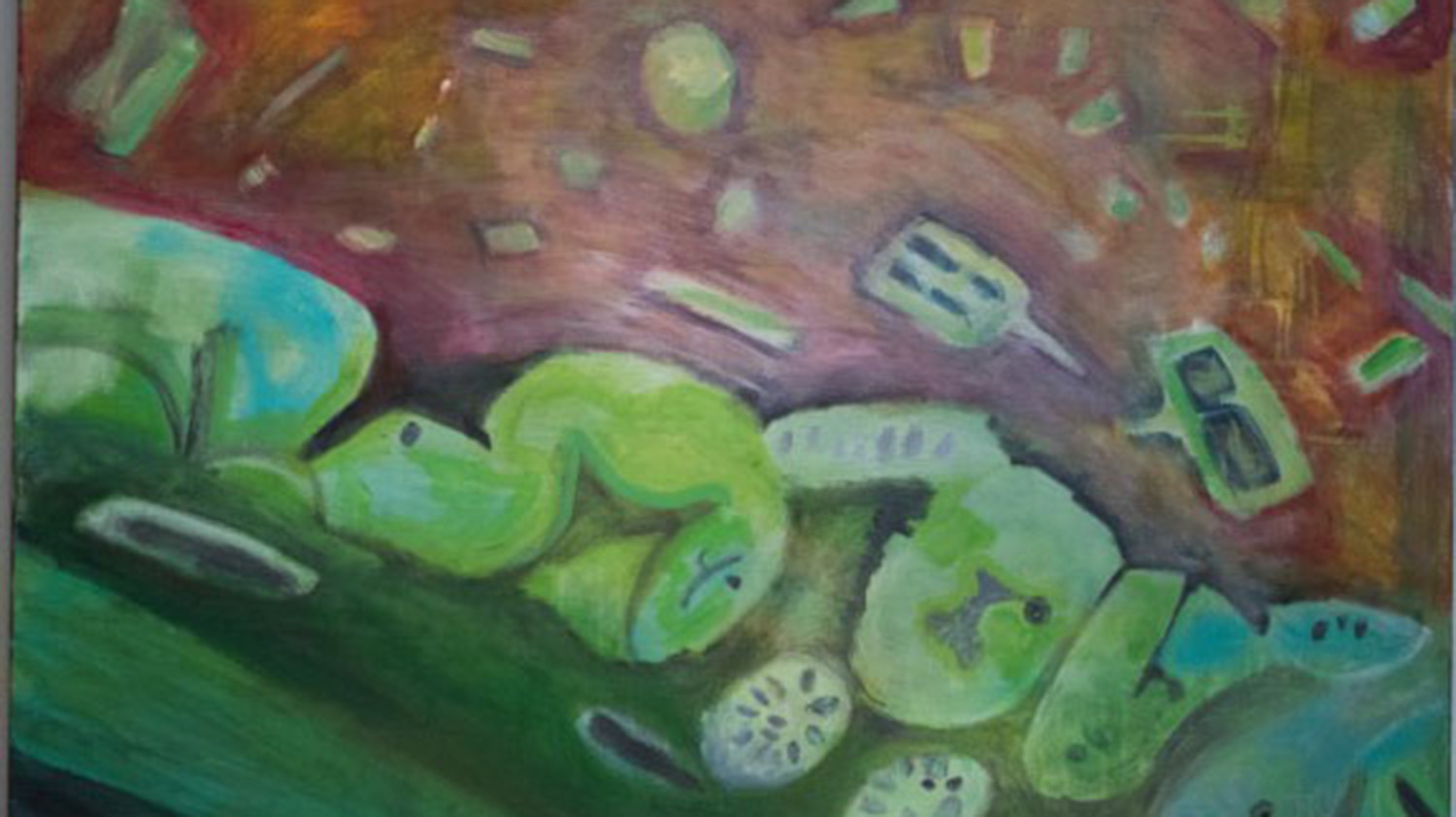Drug Used to Treat Liver Disease Also Affects C. diff Life Cycle, Reduces Inflammation in Mice

For Immediate Release
Researchers from North Carolina State University have found that a commonly used drug made from secondary bile acids can affect the life cycle of Clostridioides difficile (C. diff) in vitro and reduce the inflammatory response to C. diff in mice. The findings aid understanding of how this drug may be used in future treatment of C. diff infections in humans.
The drug in question – ursodiol, ursodeoxycholate or UDCA – is a secondary bile acid made by bacteria in the gut and is also FDA approved to treat inflammatory liver diseases. It is currently in Phase 4 clinical trials for use in treatment of C. diff infections.
“If UDCA proves effective against C. diff infection, it would give us an alternative to antibiotic treatments that further disrupt the gut microbiome and can lead to relapse, or to fecal transplants that may have unknown side effects,” says Casey Theriot, assistant professor of population health and pathobiology at NC State and corresponding author of the work.
Theriot and a team of researchers from NC State, Pennsylvania State University and the University of North Carolina at Chapel Hill looked at UDCA treatment of C. diff in vitro and as a pre-treatment in a mouse model of the disease.
C. diff exists in the environment as a dormant spore. In humans, the spores colonize the large intestine by germinating, becoming bacteria that produce damaging toxins. Theriot and her team, led by former NC State graduate student Jenessa Winston, knew that UDCA would inhibit germination, growth and toxin production in vitro, and wanted to see if it would have the same effect in a mouse model.
In vitro, treatment with UDCA significantly decreased C. diff spore germination, growth and toxin activity. In the mouse model, pre-treatment with UDCA had some effect on bacterial growth, but the main effect of treatment was to suppress the inflammatory response of the immune system to bacterial growth and toxin.
“Mitigating the immune response means that pre-treatment with UDCA could significantly reduce tissue damage due to C. diff infection,” Theriot says. “This work is the first to explore how UDCA works in vivo against C. diff infection, and demonstrates that the drug may be a viable pre-treatment to help patients avoid damaging effects of a C. diff infection. Our next steps will be to look at dosages and timing, in order to determine how to use it most effectively.”
The research appears in Infection and Immunity and is supported in part by the National Institutes of Health (R35GM119438). Winston, currently an assistant professor at The Ohio State University, is first author. Jingwei Cai and Andrew Patterson from Penn State, and Stephanie Montgomery from UNC-Chapel Hill, also contributed to the work.
-peake-
Note to editors: An abstract follows.
“Ursodeoxycholic acid (UDCA) mitigates the host inflammatory response during Clostridioides difficile infection by altering gut bile acids”
DOI: 10.1128/IAI.00045-20
Authors: Jenessa Winston, Alissa Rivera, Rajani Thanissery, Casey Theriot, North Carolina State University; Jingwei Cai, Andrew Patterson, Pennsylvania State University; Stephanie Montgomery, University of North Carolina Chapel Hill
Published: Online in Infection and Immunity
Abstract:
Clostridioides difficile infection (CDI) is associated with increasing morbidity and mortality posing an urgent threat to public health. Recurrence of CDI after successful treatment with antibiotics is high, thus necessitating discovery of novel therapeutics against this enteric pathogen. Administration of the secondary bile acid ursodeoxycholic acid (UDCA, ursodiol) inhibits the life cycle of various strains of C. difficile in vitro, suggesting the FDA approved formulation of UDCA, known as ursodiol, may be able to restore colonization resistance against C. difficile in vivo. However, the mechanism(s) by which ursodiol is able to restore colonization resistance against C. difficile remains unknown. Here, we confirmed that ursodiol inhibits C. difficile R20291 spore germination and outgrowth, growth, and toxin activity in a dose dependent manner in vitro. In a murine model of CDI, exogenous administration of ursodiol resulted in significant alterations in the bile acid metabolome with little to no changes in gut microbial community structure. Ursodiol pretreatment resulted in attenuation of CDI pathogenesis early in the course of disease, which coincided with alterations in the cecal and colonic inflammatory transcriptome, bile acid activated receptors nuclear farnesoid X receptor (FXR), and transmembrane G protein-coupled membrane receptor 5 (TGR5), which are able to modulate the innate immune response through signaling pathways such as NF-κB. Although ursodiol pretreatment did not result in a consistent decrease in the C. difficile life cycle in vivo, it was able to attenuate an overly robust inflammatory response that is detrimental to the host during CDI. Ursodiol remains a viable non-antibiotic treatment and/or prevention strategy against CDI. Likewise, modulation of the host innate immune response via bile acid activated receptors, FXR and TGR5, represents a new potential treatment strategy for patients with CDI.


